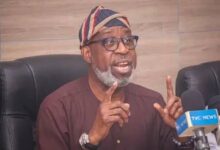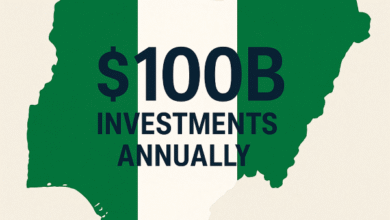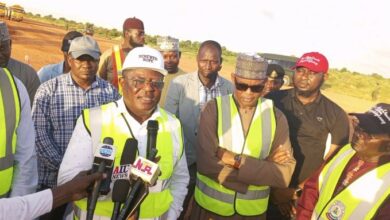Nigeria’s recycling industry worth N18bn – LAWMA MD
 The Managing Director of the Lagos State Waste Management Authority (LAWMA), Mr Ibrahim Odumboni, says the Nigerian recycling industry is worth N18 billion with inherent job creation potential.
The Managing Director of the Lagos State Waste Management Authority (LAWMA), Mr Ibrahim Odumboni, says the Nigerian recycling industry is worth N18 billion with inherent job creation potential.
Odumboni said this at the inauguration of the Lagos Recyclers Association (LAGRA) at the Muson Centre on Wednesday in Lagos.
Commending the efforts of the association on the recycling sector and job creation, Odumboni urged Nigerians to tap into the lucrativeness of the industry.
“I enjoin all stakeholders in the sector to join hands to support LAGRA so that it can be bigger, better and stronger. So, it can be an example for other states as well.
“With the inauguration of LAGRA, we can begin to enforce the circular economy policies of LASG; we can begin to see the circularity in sight.
“There are lots of opportunities to be tapped from the circular economy in Lagos alone. As at last year, we recorded about N18 billion in value of the recycling economy in Lagos.
“Recycling is an opportunity for every Nigerian youth out there; they can be entrepreneurs from recycling activities. Recycling and waste generally has a lot to do with job creation,’’ he said.
According to him, the Lagos Government is proud to be associated with LAGRA.
adding that its birth was closely linked to LAWMA’s influence based on the need to have a working relationship with recyclers.
“There are enormous opportunities in recycling but it is time for Nigerians to grab the opportunities therein. In the nearest future plastic pollution will be a thing of the past,” Odumboni said.
In his welcome address, Dr Femi Idowu-Adegoke, President of LAGRA, said it was time to nurture the recycling in order to unleash its potential to boost the country’s Gross Domestic Product (GDP).
“Recycling in Nigeria has been in existence for decades but most people have been engaging in it informally, hence the need to formalise the sector with the inauguration of LAGRA.
“We have come together to make a formidable force because if we do continue doing it individually, the industry will not experience the kind of growth that is expected.
“Recycling has environmental, social and economic benefits. Recycling is a huge industry and it is worth over a billion dollar in Nigeria,’’ he said.
Idowu-Adegoke urged the association to continue to nurture the recycling industry in the country.
“In the next five years, the industry will be amazing what recycling will be able to do to our GDP as it will be a major employer of labour.
“Within one year, from five registered recycling companies, we now have about 104 recycling companies and over 6,000 informal recyclers. So, you can imagine the employment they create.
“Recycling is an export driven activity and recently we have began to see a lot of young people export products from recyclables,” Idowu-Adegoke said.
Mr Olalekan Fatodu, Senior Special Assistant to Lago State Governor on Sustainable Development Goals (SDGs), said the pursuance of a circular economy was one of the policy goals of Lagos State Government.
“Creating a circular economy is one of the most important development collaboration that we have in Lagos state and we are grateful to LAGRA for putting this together.
“We cannot overemphasis the need for resource management and responsible consumption and production.
“I believe some of the efforts and actions of LAGRA will lead to ways to beat plastic pollution in Nigeria with Lagos serving as a pilot copy.
“If we do not come together to take a more decisive action on the issue of waste management, resource preservation and management, we will be faced with another danger that will be difficult to control,’’ he said.
The News Agency of Nigeria (NAN) reports that LAGRA was formed in April 2021 to further propagate the Municipal Solid Waste Recycling Programme of Lagos state.
It is dedicated to promoting waste reduction, reuse, recycling, salvaging and composting.
LAGRA inaugural conference with the theme: “Highlighting the Lagos Circular Economy,’’ was attended by various environment stakeholders from the government and private sectors.











